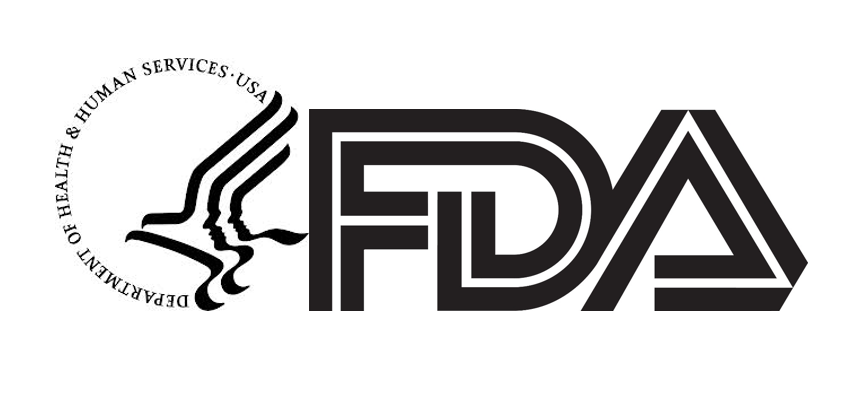In the competitive realm of bodybuilding, athletes constantly seek the most effective methods to gain muscle mass and enhance performance. The use of peptides and anabolic steroids has become a focal point in these efforts. Peptides, short chains of amino acids, have gained popularity for their potential to influence muscle growth and recovery. On the other hand, anabolic steroids, synthetic versions of the male sex hormone testosterone, are well-known for their capacity to increase muscle mass and strength.
While both peptides and anabolic steroids serve as performance-enhancing substances in bodybuilding, they operate through different mechanisms within the human body. Peptides often act by stimulating the release of growth hormone, which can lead to muscle growth and fat loss, whereas anabolic steroids directly increase protein synthesis within cells, causing the muscles to grow larger. Given their unique pathways, they present distinct advantages and risks.
The choice between peptides and anabolic steroids is not just a matter of efficacy in muscle development but also involves health implications, safety concerns, and legal aspects. The long-term effects of anabolic steroids have been well-documented, often casting a shadow over their use due to the potential for severe side effects. Peptides may offer a safer profile, but their long-term safety is less understood. As such, bodybuilders must navigate a complex landscape of benefits, risks, and legalities while optimizing their use for performance advancement.
Quick Summary
- Peptides and anabolic steroids are used in bodybuilding to improve muscle mass and performance.
- They differ in mechanisms of action, potential health risks, and legal considerations.
- Bodybuilders must make informed decisions to balance benefits with safety and compliance.
Fundamentals of Peptides vs Anabolic Steroids

Both peptides and anabolic steroids have gained attention in the fitness community for their potential in enhancing muscle growth and physical performance.
Understanding Peptides
Peptides are short chains of amino acids, which are the building blocks of proteins. They are naturally occurring within the body and serve a variety of functions, including as hormones and neurotransmitters. In bodybuilding, synthetic peptides are used to stimulate the release of hormones like human growth hormone (HGH) that can promote muscle growth and recovery. They bind to specific receptors on the cell surface and can act as signaling molecules to initiate certain biological processes beneficial to muscle-building.
Understanding Anabolic Steroids
Anabolic steroids are synthetic substances similar to testosterone, the primary male sex hormone. They are known to accelerate protein synthesis within cells, leading to increased muscle buildup. By binding to androgen receptors, anabolic steroids enhance the body’s ability to build muscle and reduce recovery times. However, they are classified as controlled substances due to their potential for abuse and adverse health consequences. They are usually taken in cycles and often combined with other substances to maximize muscle growth and athletic performance.
Peptides vs Anabolic Steroids: Muscle Development and Performance

Peptides and anabolic steroids are different compounds that bodybuilders may use to enhance muscle growth and strength. These substances work through various mechanisms to support gains in muscle mass and improve overall physical performance.
Peptides and Muscle Growth
Peptides, such as growth hormone secretagogues, stimulate the secretion of growth hormone (GH) and insulin-like growth factor 1 (IGF-1), both of which are critical for muscle development. Growth hormone plays a significant role in body composition, not only supporting muscle growth but also aiding in fat loss. Growth hormone secretagogues like GHRP-6 and Ipamorelin can lead to increased production of GH, subsequently enhancing muscle growth and lean muscle mass.
- Insulin-like Growth Factor 1 (IGF-1):
- Promotes protein synthesis
- Crucial for muscle gain and regeneration
Through the signaling pathways, IGF-1 can increase protein synthesis, which is the process of building new proteins in the muscle cells, allowing for not only growth but also the repair of muscle tissue.
Anabolic Steroids and Strength Gains
Anabolic steroids are synthetic versions of testosterone, which is the primary male sex hormone responsible for the development of masculine features and muscle mass. Their use in bodybuilding is mainly attributed to their ability to increase muscle mass and strength.
- Testosterone:
- Enhances muscle mass and strength
- Boosts physical performance
Anabolic steroids bind to androgen receptors in the body, leading to increased protein synthesis and creating a positive nitrogen balance, which is necessary for muscle growth. They can also reduce recovery times, enabling athletes to train more intensely and frequently.
While both peptides and anabolic steroids can considerably boost muscle development and performance, they carry potential risks that require careful consideration and legal compliance.
References
- Growth Hormone:
- Peptides and Muscle Growth:
- Anabolic Steroids:
Side Effects of Peptides vs Anabolic Steroids
When evaluating the use of peptides and anabolic steroids for bodybuilding, it is crucial to consider their health implications and safety concerns. Each has distinct side effects and risks that one should understand before use.
Side Effects of Peptides
Peptides, which are short chains of amino acids, are generally considered to be safer than anabolic steroids. They are often used to stimulate the release of growth hormone, which can promote muscle growth and fat loss. However, their use is not free from side effects. Potential unwanted side effects may include:
- Skin reactions: Injection site reactions such as redness, itching, and swelling.
- Hormonal imbalances: Potential disruption of the body’s natural hormone production, which may lead to symptoms like fatigue and decreased libido.
- Nausea: Some individuals may experience nausea after peptide use.
Risks Associated with Anabolic Steroids
Anabolic steroids are synthetic variants of the male sex hormone testosterone and can significantly alter the body’s functioning. Their side effects and risks can be severe, including:
Liver damage: Oral anabolic steroids pose a particular risk to liver health, potentially leading to liver disease or cancer. Cardiovascular problems: Steroid use is linked to increased risk of heart disease and stroke, heightened by negative impacts on cholesterol levels.
- Hair loss and acne: Due to the increased level of hormones, users may experience accelerated hair loss and severe acne.
- Hormonal imbalances: Prolonged use can suppress the natural production of testosterone, which might necessitate medical intervention to restore balance.
- Psychological effects: Users might face mood swings, increased aggression, and other psychological issues.
Regulatory and Legal Aspects

The use of peptides and anabolic steroids in bodybuilding is bound by strict regulatory and legal frameworks. These govern their respective legal status, controlled substance classification, prescription use, and oversight by entities like the World Anti-Doping Agency and the FDA.
Peptides vs Anabolic Steroids Legality
Peptides are short chains of amino acids and are typically not classified as controlled substances. However, the legality of peptides can vary depending on their intended use and regulatory approval status. In the context of bodybuilding, peptides that are marketed for enhancing performance may only be legally available by prescription for specific medical conditions.
- Example: GH secretagogues (growth hormone-releasing hormones) are legal only with a prescription.
- FDA Oversight: Peptides not approved by the FDA for bodybuilding are illegal to market and sell.
Anabolic Steroids are a class of synthetic substances that mimic the effects of the male hormone testosterone. They are classified as Schedule III controlled substances under the Controlled Substances Act in the United States.
- Legality: It is illegal to possess anabolic steroids without a prescription.
- Prescription Requirements: Legitimate medical uses require a prescription from a healthcare provider.
Controlled Substance Regulation
Schedule III Classification of anabolic steroids stipulates strict regulatory controls, including manufacturing quotas, record-keeping requirements, and prescriptive authority limits.
- World Anti-Doping Agency (WADA): WADA prohibits the use of anabolic steroids in competitive sports, and athletes found with these substances in their system can face severe penalties.
- FDA Regulations: The FDA enforces regulations concerning the marketing and distribution of controlled substances, including the requirements for prescriptions.
References
- FDA Regulatory Information: https://www.fda.gov/regulatory-information
- DEA Controlled Substance Schedules: https://www.dea.gov/drug-information/csa
- World Anti-Doping Agency Prohibited List: https://www.wada-ama.org/en/content/what-is-prohibited
Optimizing Use in Bodybuilding

The successful application of peptides and anabolic steroids in bodybuilding hinges on precise dosage, strategic dieting, supplement use, and a rigorous workout regimen.
Effective Dosage and Administration
For bodybuilders, establishing the correct dosage of peptides or anabolic steroids is crucial for maximizing muscle size and recovery, while minimizing side effects. Dosages vary widely based on individual goals, hormone production levels, and tolerance. For peptides, such as Growth Hormone Releasing Peptides, lower doses can be administered several times a day to mimic the natural pulses of hormone production. An example schedule could be:
- GHRP-6: 100-300mcg, 2-3 times daily
Conversely, anabolic steroids are typically administered in weekly cycles. For instance:
- Testosterone Enanthate: 300-500mg per week for beginners
Recovery time is closely linked to these dosages, with inappropriate amounts potentially leading to longer recovery periods and increased appetite, which may impact diet.
Combining Diet, Supplements, and Workouts
The integration of diet, supplements, and workouts is essential in bodybuilding, particularly when using peptides or steroids. The diet must be protein-rich to support muscle repair and growth, and tailored to control insulin levels for optimal hormonal balance. Supplements like creatine and branched-chain amino acids (BCAAs) further enhance recovery and muscle building.
Adefinitive workout routine should align with anabolic phases to exploit the enhanced muscle-building conditions. For instance:
* Strength training: 4-5 days a week focusing on progressive overload
Incorporating rest days is as essential as the workouts to allow for muscle recovery.
Frequently Asked Questions

In this section, we address some common inquiries regarding the use of peptides and anabolic steroids in bodybuilding, elaborating on their differences, potential side effects, and legal considerations.
What are the differences between peptides and anabolic steroids in enhancing muscle growth?
Peptides are short chains of amino acids that can stimulate the release of growth hormone, which in turn supports muscle growth and recovery. Anabolic steroids, on the other hand, are synthetic variations of testosterone, which directly increase protein synthesis within cells, leading to rapid muscle growth and strength gains.
What potential side effects should be considered when using peptides for bodybuilding?
While peptides are generally considered to be less harsh than steroids, they can still cause side effects such as skin irritation at the injection site, increased water retention, and a potential increase in cortisol levels. It’s essential to monitor the body’s response and adjust dosage accordingly.
Can combining peptides and anabolic steroids lead to improved bodybuilding results?
Some bodybuilders believe that combining peptides with anabolic steroids can lead to synergistic effects, potentially maximizing muscle growth and recovery. However, this practice also increases the risk of side effects and should be approached with caution and under professional guidance.
Is there a risk of testosterone suppression when using peptides for muscle growth?
Some peptides may stimulate the body’s own production of growth hormone, which can in turn affect the secretion of gonadotropins and consequently testosterone. It is important to note that the risk of testosterone suppression is often lower than with the use of anabolic steroids.
What are the legal considerations surrounding the use of peptides in bodybuilding?
The legality of peptide use in bodybuilding varies by country and jurisdiction. In some places, possession and use without a prescription can result in legal repercussions. Bodybuilders should ensure they are in compliance with local laws and regulations before acquiring or using peptides.
Which peptides are most effective for muscle growth in bodybuilding?
Peptides such as CJC-1295, ipamorelin, and GHRP-6 are commonly cited for their efficacy in promoting muscle growth. These peptides increase the release of growth hormone, which can aid in muscle development and recovery. It’s recommended to consult with a medical professional to determine the most suitable option.
Dr. Grant Fourie, a specialist in male hormones, is based in Cape Town, South Africa. He provides comprehensive treatments for conditions related to low testosterone, such as erectile dysfunction, fatigue, and mood changes. His methods include hormone replacement therapy and other modern treatment options.
Contact me via email or phone to book personal appointment in my clinic: The Village Square, Cape Town - South Africa



